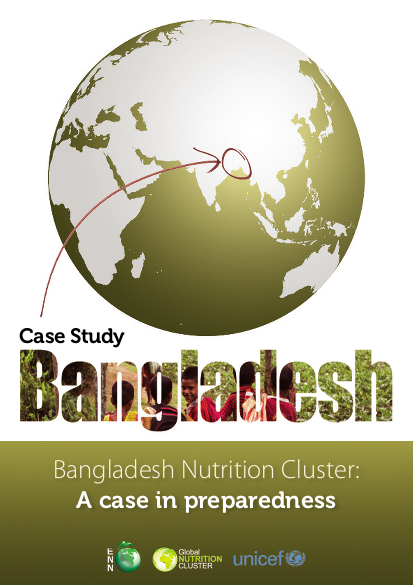
This case study is one of six case studies produced through a year-long collaboration in 2015 between ENN and the Global Nutrition Cluster (GNC) to capture and disseminate knowledge about the Nutrition Cluster experiences of responding to Level 2 and Level 3 emergencies. They each provide very rich insights into the achievements of the cluster approach and the challenges of working in complex environments.
Given gaps in preparedness and emergency response highlighted in a number of reviews, in 2012 the Government of Bangladesh (GoB) established a national cluster system to address emergency preparedness and response directly (without Inter-Agency Standing Committee (IASC) support or declaration). Specifically, the NC aims to support the GoB in the coordination of effective emergency preparedness and response to humanitarian crises. This case study highlights the significant work the NC has conducted during this period, particularly with regard to nutrition programming, coordination and assessment of gaps, and identifies challenges and learning.
